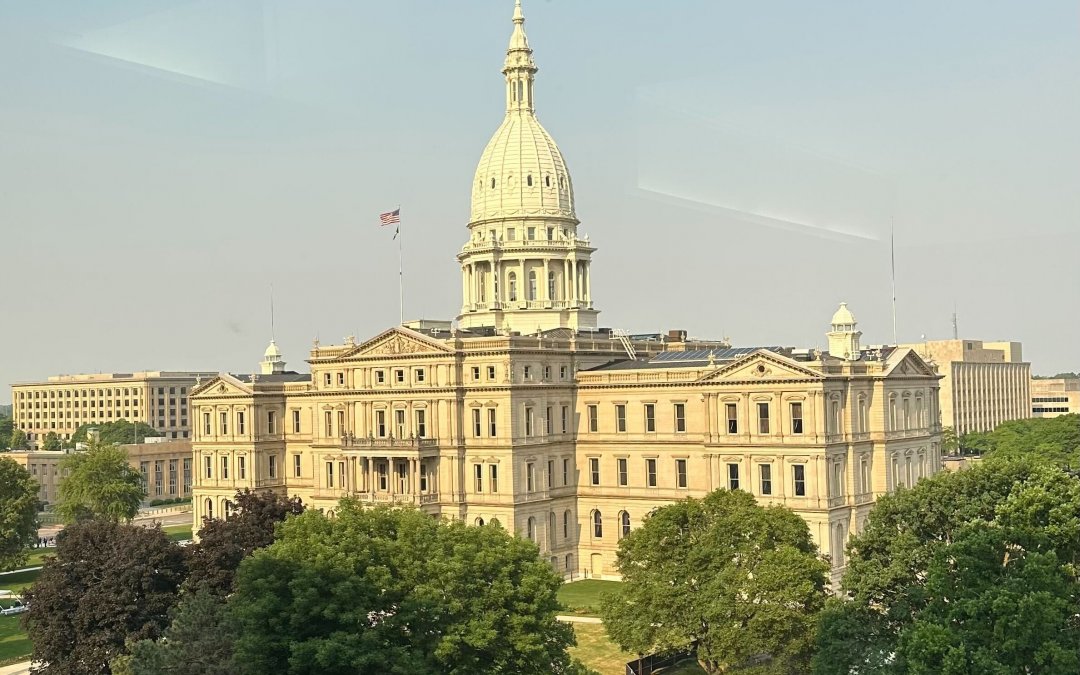Sen. Gary Peters’ (D-Mich.) recent decision to retire at the end of his term leaves a Senate seat in a battleground state up for grabs in 2026, and raises questions about whether the Midwestern state will provide a crystal ball into future national elections.
“It’s not just that we’re a swing state, but we’re kind of a microcosm of the country and our politics make us really relevant,” said Dr. Jenna Bednar, professor of political science and public policy at the University of Michigan.
Bednar feels that the current dynamics of each party within the state reflect the national scene–just in reverse.
On the national stage, Republicans have clear leadership and the Democratic Party lacks frontrunners. In Michigan, however, Democrats have many rising stars while Republicans are regrouping after losing the high-profile race for U.S. Senate.
In the presidential race, Michigan has flipped every election since 2012. Once part of the Midwestern “blue wall,” the state flipped red for Trump in 2016 by an average of two votes per precinct. Biden won in 2020 by three percentage points. Trump regained it in 2024, but by an even slimmer margin.
In state politics, the 2018 and 2022 midterms led to major shifts. Democrats won all the major races in the executive branch, governor, secretary of state and attorney general. That marked a major leftward shift for Michigan. In 2022, both chambers of the state legislature flipped blue for the first time in nearly four decades.
In recent elections, Michigan’s political landscape mirrored the broader national environment, with the Democratic Party drawing in union auto workers, academics and urban voters, political experts said. The Republican Party included rural agricultural workers, evangelical Christians in western Michigan and wealthy moderates resonating with the policies that harken back to the era of Michigan-native, President Gerald Ford.
The national shift to the right has left Michigan’s moderates searching for a party that better aligns with their beliefs, and “there’s a big segment that just feels homeless,” said Bednar. This reorganization reflected the division within the national Democratic Party following frustration after the 2024 election.
“There’s a lot of infighting going on within the Michigan Republican Party,” said Doug Nelson, chair of the Van Buren County Republican Party.
The county, which is located in southwestern Michigan, voted for Obama in 2012 but swung significantly to the right since.
“I think if we all get united, we can win this governor’s race for sure. We just need everybody on the same page,” Nelson said.
With Gov. Gretchen Whitmer facing a term limit in 2026, several Democrats have already thrown their hats in the ring, including Secretary of State Jocelyn Benson and Genesee County Sheriff Chris Swanson. On the GOP side, Senate Minority Leader Aric Nesbitt (R-Porter Twp.) is running, as is Anthony Hudson, a truck driver from Genesee County. Detroit Mayor Mike Duggan, a lifelong Democrat, is running as an independent,
“Folks are energized and looking to what we can do to protect our communities and to protect our institutions,” said Justin Mendoza, chair of the solidly blue Kalamazoo County Democratic Party in southwestern Michigan. “We need to do everything we can here in Kalamazoo to get some sure-fire folks elected at the top.”
Mendoza stressed the importance of early preparation for the upcoming midterm election and said his party was already looking toward 2026.
“It’s never too early to start prepping,” he said.
The midterms could determine which party controls the U.S. Congress starting in 2027 and the Great Lake State could foretell the country’s future.
“We’re still as purple as ever,” said Mendoza. “And because of that, we’ll continue to be a priority in the national landscape.”


